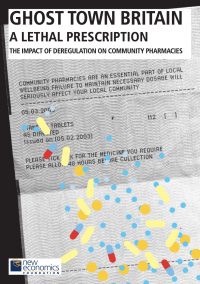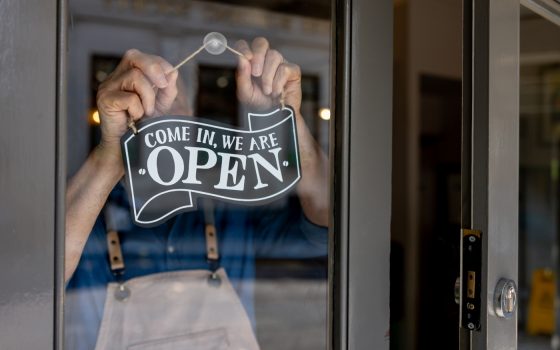Ghost Town Britain: a Lethal Prescription
The impact of deregulation on community pharmacies
05 March 2003
Until recently, the 12,250 community pharmacies on our high streets have been in relatively a protected position.
Under regulations introduced in 1987 only those pharmacists who have satisfied health authority requirements that their services are ‘necessary or desirable’ for a local area are currently given dispensation to provide NHS prescriptions.
These prescription rights are what make local pharmacies viable. Some 80 per cent of local pharmacy income is derived form NHS prescriptions – the sale of other cosmetic or bathroom products makes up for the remaining 20 per cent.
This policy of ‘market regulation’ has had the effect, according to the Office of Fair Trading (OFT) of blocking any new pharmacy businesses from being able to enter the market.
Because the sorts of outlets that are allowed to dispense prescriptions has been controlled and licensed by the NHS, it argues, the opportunity for competition in the pharmacy market is artificially limited.
In January 2003, the OFT put forward a recommendation that restrictions should be removed from the community pharmacy market.
It argued that liberalising the licensing scheme would give consumers more choice and access to pharmacy services. This briefing aims to examine that claim – in the light of what has happened to the rest of Britain’s local services.
Topics Local economies







